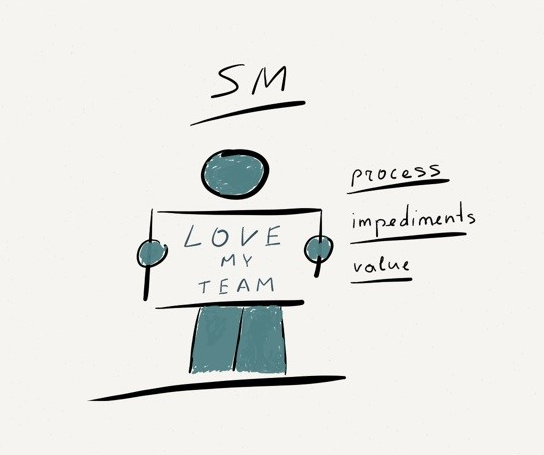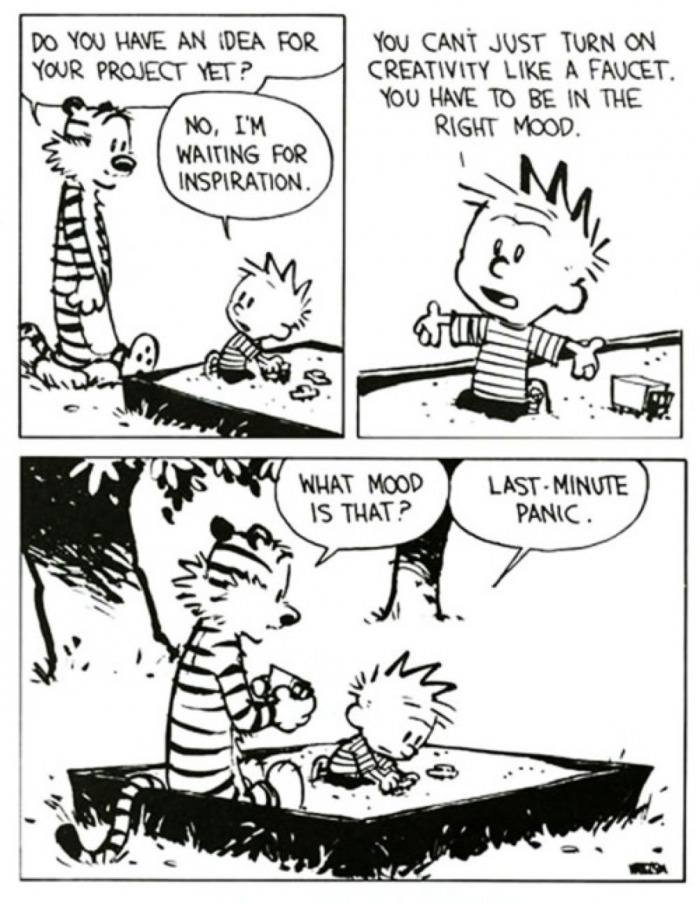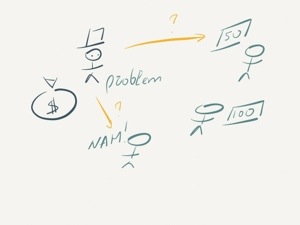If you search Google you will easily find a description of the role and most probably you perfectly know it.
But why there is still an open discussion takes place. Should a Scrum Master be the only role? Can a Developer (QA, whatever…) perfectly perform this role? Here is normal team:

Team’s output – perfect product; Scrum Master’s output – highly performing team
As it can be seen role of a Scrum Master is critical for the team. Scrum Master is the person who challenges the team and focus on improvements. Key aspects that allow to achieve that:
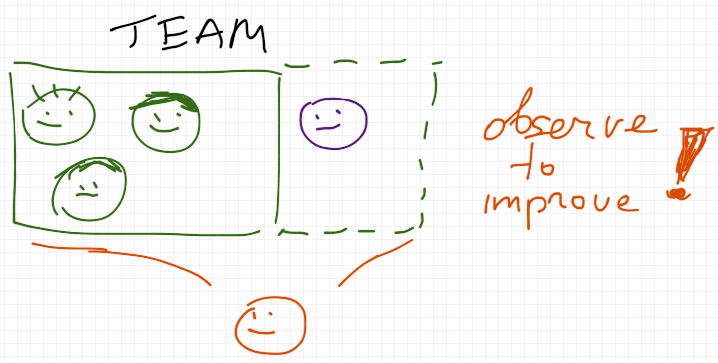
Only person who is not committed to a sprint can focus on observing team’s work, fostering difficult discussions and thinking about long term improvements. From my experience it’s much more difficult to do that being a developer acting as a Scrum Master.
It’s written in a lot of books - to improve the system you must be outside. How often do you see a football team coach who is also playing on the field? If you did, it definitely wasn’t a game of professional teams and in all cases this model fails.
Why doesn’t this work? Everything is simple. While you are on the field you don’t see how the whole team performs. You don’t know when it’s best to make substitutes e.g. to give someone a rest before a very important match next week or just to avoid injuries; you can miss when opponent changes tactics or you noticed problems other team has and new learned tricks can be applied.
- Substitutes or injuries can be mapped to handling conflicts, fixing small bugs or implementing some practices
- Change of tactics can be mapped to desire to innovate, learn and build long term value
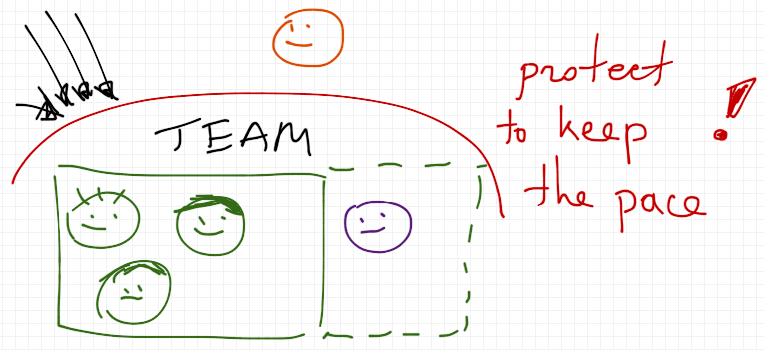
I believe by “protection” everybody thinks about external “threats”: Product Owner with new requirements, other teams with questions, noisy room and etc.
While it’s true I think it’s more important to protect team from themselves - over committing, forgetting about technical debt or non-functional requirements, resistance to new practices, lack of courage to say “no”.
Protection gives possibilities for the teams to keep the pace and improve.
Resume
You must spend a lot of time on the activities above to grow teams. Decision who is going to perform Scrum Master’s role depends on how fast you want to improve.
